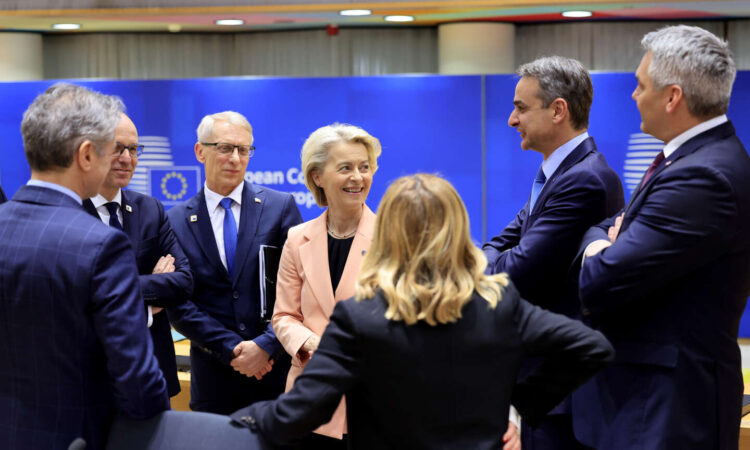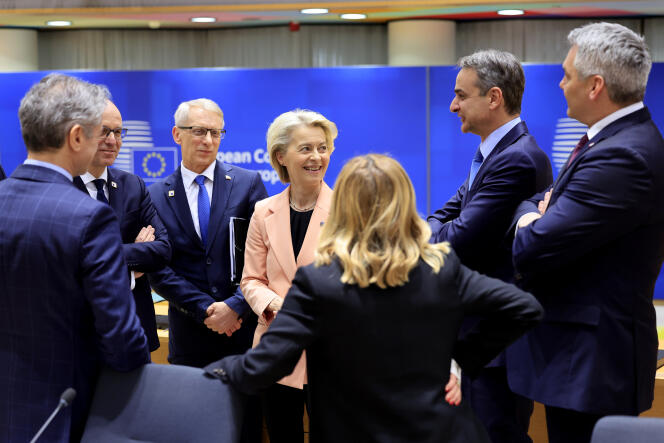

With Russian forces advancing daily in Ukraine, the European Union’s 27 member states have never been so worried about a victory for Moscow. The prospect of a catastrophic scenario gave the meeting of European leaders in Brussels on Thursday, March 21 the appearance of a war council. With the exception of Hungary and Slovakia, all member states share one preoccupation: increasing military aid to Kyiv as quickly as possible. “There is a growing feeling among the 27 member states that Russia will not stop at Ukraine,” said a senior European official.
The EU is at a turning point, with initiatives that would have been unimaginable just a short while ago. Although the 27 member states are still a long way from an agreement, they no longer rule out going into debt together to finance their defense industry and deliver arms to Ukraine, as they did to contain the economic ravages of the Covid-19 pandemic.
“The atmosphere has changed. More and more member states are realizing that the Russian threat concerns the whole of Europe,” said Finnish Prime Minister Petteri Orpo during a meeting with journalists. Faced with the Russian army, which is gaining ground in the Donbas and constantly bombing Kyiv and Odesa, Ukraine appears to be in a bad position. “The summer will be critical,” warned the head of European diplomacy, Josep Borrell, a few days ago. He continued: “Two years ago, I said, ‘Europe was in danger.’ [Today,] it is even more so.”
“If we leave Ukraine alone, if we let Ukraine lose this war, then, for sure, Russia will threaten Moldova, Romania, Poland,” declared Emmanuel Macron on March 14. “If we don’t react appropriately at the EU level, and if we don’t give Ukraine enough help to stop Russia, we’ll be next,” echoed Council President Charles Michel, in an op-ed published in Libération on March 18.
Months of negotiations
Since the beginning of the war, the EU has spared no effort to support Kyiv. In December 2023, it opened membership negotiations with Ukraine. On February 1, it decided to allocate €50 billion between now and 2027 to help finance its budget and reconstruction. On the military side, European governments and the Union have already spent €31 billion to arm Kyiv, and are planning a further 20 billion between now and the end of the year.
But that’s not enough: while Russia spends €15 billion per month on its war effort, Ukraine spends three times less. After two years of having written into the conclusions of European Council meetings that they would stand by Kyiv “for as long as necessary,” the 27 member states reinforced this commitment on Thursday. From now on, they also promise to support Kyiv “as intensively as necessary.” “We really like this formula, the president is keen on it,” commented the Elysée.
You have 56.77% of this article left to read. The rest is for subscribers only.






